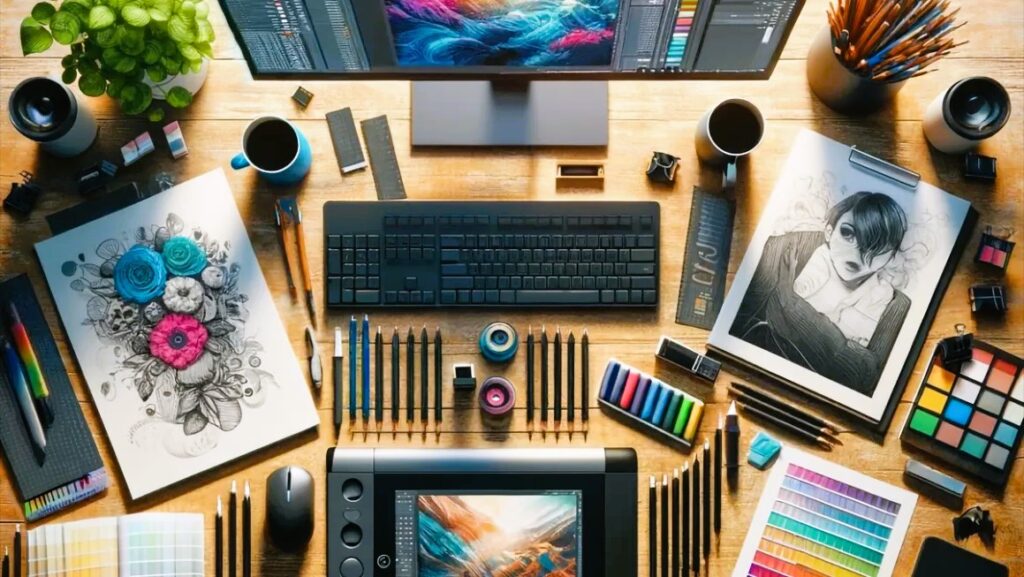The indie game development world has never been more vibrant. With modern tools making game creation more accessible than ever, countless independent developers are bringing their ideas to life. However, the choice of tools can make or break a project. Selecting the right software not only impacts the quality of the game but also the efficiency and workflow of the development process. Below, we explore some of the best tools available for indie game developers, covering everything from game engines to design software and sound tools.
Game Engines: The Backbone of Development
A game engine is a crucial part of any game development project, providing the essential framework for game creation. It allows developers to integrate physics, rendering, scripting, and AI with ease. Let’s look at some popular options:
Unity
Unity is a go-to game engine for many indie developers, known for its flexibility and community support. It allows for the creation of 2D and 3D games and offers a comprehensive asset store where developers can purchase or download free resources to aid their projects. Unity is beginner-friendly, thanks to an intuitive interface and a vast array of tutorials. This engine also supports multiple platforms, enabling developers to export their games across PC, mobile, and consoles seamlessly. Learn more about Unity on Wikipedia.
Unreal Engine
Unreal Engine is another popular choice, especially for high-quality 3D games. Known for its graphical fidelity, Unreal is commonly used in AAA games, but it’s accessible to indie developers as well, thanks to a free license up to a certain revenue cap. The Blueprint visual scripting system allows developers without extensive coding experience to create complex game logic, making it an appealing option for smaller teams. For more on Unreal Engine, visit its Wikipedia page.
Godot
Godot is an open-source game engine growing in popularity among indie developers, particularly those working on 2D games. It features a lightweight interface and an accessible scripting language (GDScript), which is similar to Python, making it easy to learn. The engine’s node-based structure simplifies the creation of complex scenes and game mechanics, allowing for high modularity in game design.
Art and Design Software: Bringing Visuals to Life

Visuals are a defining aspect of any game, and there’s a range of software available for creating everything from 2D sprites to 3D models. Here are some essential tools for indie developers.
Photoshop and GIMP
Adobe Photoshop is one of the most well-known tools for 2D game art, allowing artists to create intricate textures, character designs, and backgrounds. However, Photoshop can be costly, which leads many indie developers to use GIMP, a free, open-source alternative. GIMP offers a similar toolset, including support for layers, masks, and brushes, which can handle a broad range of game art needs.
Blender
Blender is a powerful, free tool for creating 3D assets, and its robust feature set rivals some paid software. With Blender, indie developers can model, texture, animate, and render their 3D objects, making it invaluable for games with 3D visuals. Blender is especially popular among indie developers because of its affordability and comprehensive tutorials available online. Did you like the article? Read also interviews with aspiring creators.
Sound and Music Software: Building an Immersive Experience
Sound is integral to building a game’s atmosphere, and there are several tools available to help indie developers create immersive audio experiences.
Audacity
Audacity is a free, open-source audio editor ideal for recording, editing, and mixing sounds. Whether creating sound effects or adjusting background music, Audacity provides a comprehensive set of tools, including filters and effects. It’s widely used among indie developers for its simplicity and power, making it suitable for everything from simple sound editing to complex multi-track mixing.
FMOD
FMOD is a versatile sound design tool commonly used in the gaming industry, providing more advanced capabilities than most standard audio editing software. It offers developers the ability to design dynamic soundscapes that can respond to gameplay in real-time. For instance, FMOD can adjust volume and pitch based on player actions, adding a layer of interactivity to the game’s audio. Many indie developers use FMOD because of its free indie license, allowing extensive usage without high upfront costs.
Version Control Software: Collaboration and Project Management

Version control software is essential for managing and tracking changes in code, especially when working in teams or across multiple devices.
Git and GitHub
Git is an open-source version control system widely used in the tech industry. Paired with GitHub, a platform for hosting and sharing repositories, it provides a powerful way to manage game development projects. Git helps teams track changes, revert to previous versions, and collaborate more effectively. GitHub also offers issue tracking, project boards, and integration with other development tools, making it ideal for indie teams working remotely.
Perforce
Perforce is another version control system favored by professional studios, though it is also accessible for indie developers through free tiers. Known for handling large files efficiently, Perforce is suitable for projects with extensive art and sound assets. Many teams working on graphically intense games use Perforce to keep all assets and code organized.
With such a wide variety of tools available, selecting the right ones for your game can feel overwhelming. However, focusing on your project’s specific needs will help you make the best choices. Whether you’re crafting stunning 2D visuals, coding intricate gameplay mechanics, or designing immersive audio, there’s a tool for every aspect of game development. By understanding what each tool offers, indie developers can streamline their workflows and bring their creative visions to life.
Indie game development is a journey that combines creativity, technical skills, and passion. Embrace the tools that resonate with your project and enjoy the adventure of crafting your unique gaming experience.
For more comprehensive insights into game development, visit IGN’s guide to game creation for further inspiration and resources.
